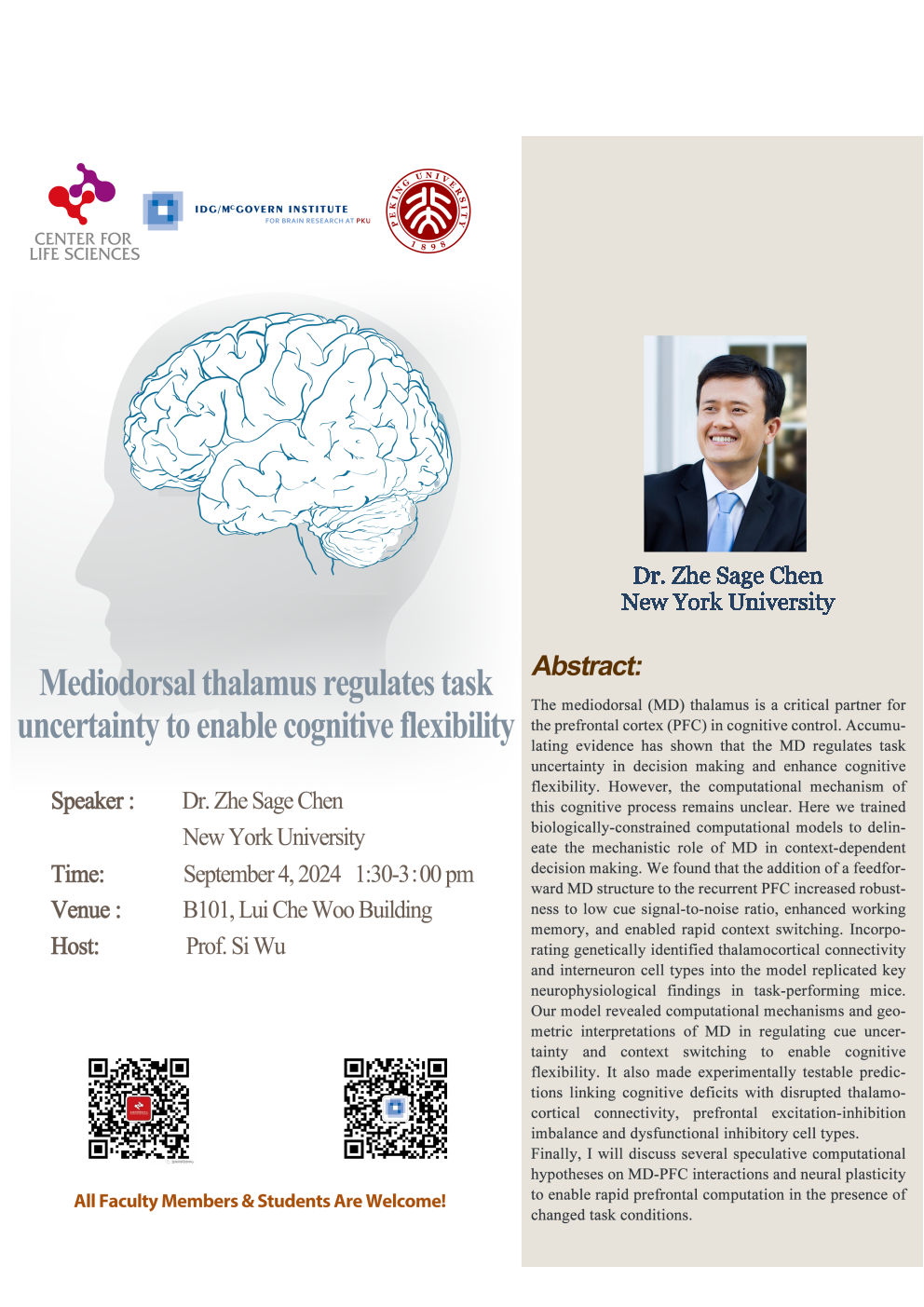Speaker:Dr. Zhe Sage Che, NewYork University
Time:13:30-15:00, September 4, 2024
Venue:B101, Lui Che Woo Building(吕志和楼)
Host:Prof. Si Wu
Abstract
The mediodorsal (MD) thalamus is a critical partner for the prefrontal cortex (PFC) in cognitive control. Accumulating evidence has shown that the MD regulates task uncertainty in decision making and enhance cognitive flexibility. However, the computational mechanism of this cognitive process remains unclear. Here we trained biologically-constrained computational models to delineate the mechanistic role of MD in context-dependent decision making. We found that the addition of a feedforward MD structure to the recurrent PFC increased robustness to low cue signal-to-noise ratio, enhanced working memory, and enabled rapid context switching. Incorporating genetically identified thalamocortical connectivity and interneuron cell types into the model replicated key neurophysiological findings in task-performing mice. Our model revealed computational mechanisms and geometric interpretations of MD in regulating cue uncertainty and context switching to enable cognitive flexibility, It also made experimentally testable predictions linking cognitive deficits with disrupted thalamocortical connectivity, prefrontal excitation-inhibition imbalance and dysfunctional inhibitory cell types. Finally, I will discuss several speculative computational hypotheses on MD-PFC interactions and neural plasticity to enable rapid prefrontal computation in the presence of changed task conditions.



